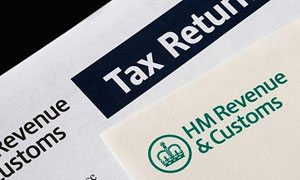The British tax man is cracking down on taxpayers who are failing to hand over complete financial dossiers about their overseas holdings in return for reduced penalties.
The Liechtenstein Disclosure Facility (LDF) lets taxpayers who have not declared income or assets in Liechtenstein tell HM Revenue & Customs about any undeclared tax in return for discounted penalties.
However, taxpayers have tried to take the discount while dodging filing the financial information demanded under LDF.
The ruse has prompted HMRC to warn that missing information that is not supplied when requested will be seen as not co-operating with the LDF rules and the taxpayer will miss out on the lenient treatment.
The LDF offers penalties on undeclared income and assets from April 1999, rather than the standard 20-year disclosure, plus a no prosecution guarantee.
Slow progress
LDF also works for taxpayers with holdings in other offshore centres that open a bank in Liechtenstein.
So far, more than 4,000 British taxpayers have applied for LDF treatment. HMRC estimates that around £3 billion of tax will be paid through the scheme.
A letter sent to many of the taxpayers registering under LDF suggests HMRC is becoming impatient with those who are dragging out the process by failing to provide financial details as required under LDF rules.
Many are claiming they do not have the money to settle their tax bills.
HMRC is demanding they provide evidence that they cannot pay and offer settlement terms.
Besides the LDF, HMRC has tax disclosure agreements in place with taxpayers who have accounts in Guernsey and the Isle of Man. A new agreement will start on similar terms for taxpayers with Jersey bank accounts in April.
Offshore tactics
Britain and Switzerland also have an agreement for HMRC to claim a one-off from undeclared Swiss bank accounts that started in January 2013.
British taxpayers with accounts in Jersey, the Isle of Man and Guernsey will also be subject of tax information swapping agreements that will run along the lines of the new US FATCA disclosure rules.
Each offshore centre will supply HMRC will details of accounts and assets held by British taxpayers.
The government published a strategy report for handling offshore tax evasion with Budget 2013.
Tactics to uncover suspected undeclared earnings and assets will include bounty payments to whistle-blowers, swapping financial details of British taxpayers with other governments and setting up specialist teams and cutting edge technology to target offshore tax management schemes.
